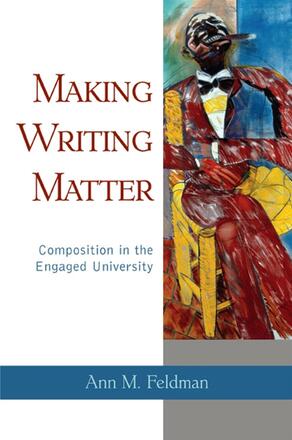
Making Writing Matter
Composition in the Engaged University
Alternative formats available from:
Challenging more limited approaches to service learning, this book examines writing instruction in the context of universities fully engaged in community partnerships.
Description
In Making Writing Matter, Ann M. Feldman explores how changing scholarship at engaged metropolitan universities offers an opportunity to redesign first-year writing classes in ways that make students better writers. An engaged university commits to a relationship with its surrounding metropolitan area, with faculty members undertaking collaborative research with community partners. The more vibrant, participatory role of an engaged university allows students to link their academic studies to important public issues and gain real-world writing experience, such as writing press releases and letters to organizations. This newly focused and contextualized research and scholarship at engaged universities shows students how discourse and writing matter in new ways.
Ann M. Feldman is Associate Professor of English at the University of Illinois at Chicago. She is the author of Writing and Learning in the Disciplines and the coauthor (with Ellen McManus and Nancy Downs) of In Context: Reading and Writing in Cultural Conversations, Second Edition.
Reviews
"Offering personal narratives and excerpts from students' work, [Feldman] illuminates what an engaged, participatory first-year writing class might look like. Particularly beneficial … is the final chapter, which describes sample writing projects and syllabi that ask students in writing courses to view themselves as participant-writers in their own communities. " — CHOICE
"Ann Feldman's work is always original and contributory; in this case she is on the cutting edge with the new engaged university and the writing instruction that it warrants. " — Susan Miller, author of Trust in Texts: A Different History of Rhetoric
"Feldman does a wonderful job of complicating matters so that composition is tied to community and becomes not just ordinary writing, but writing with real social purpose. " — Victor Villanueva, editor of Cross-Talk in Comp Theory: A Reader, Second Edition